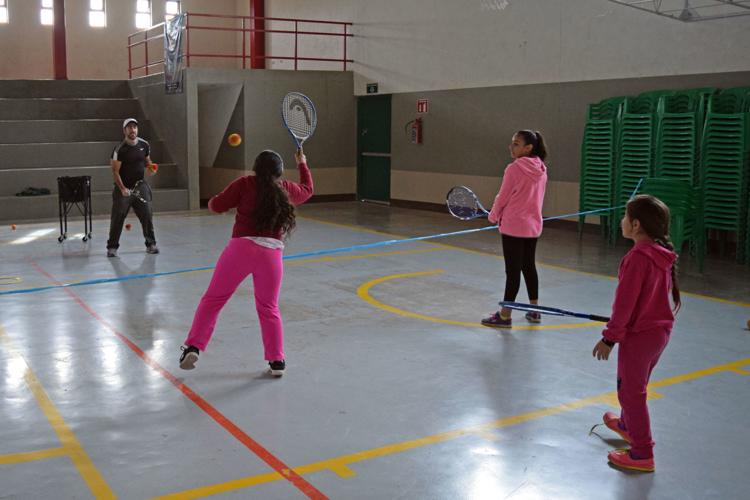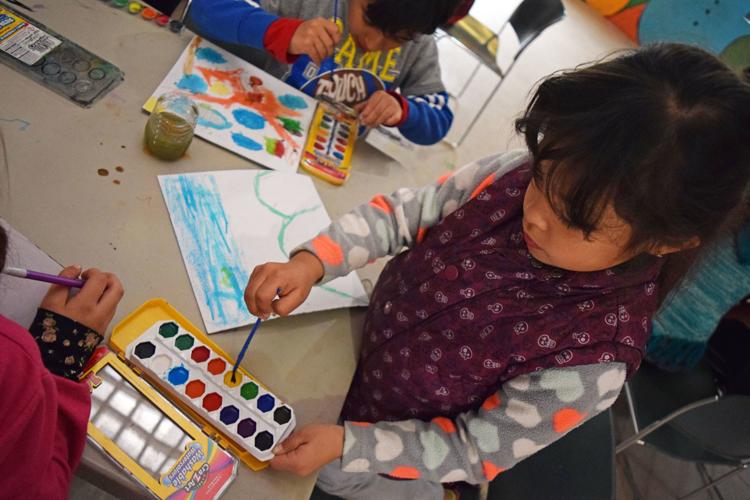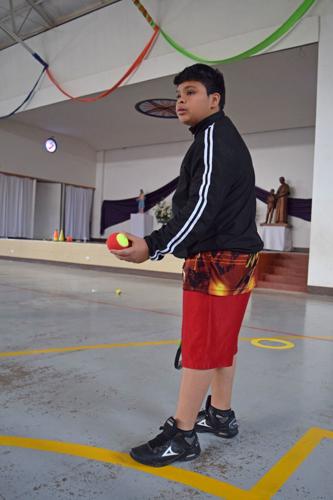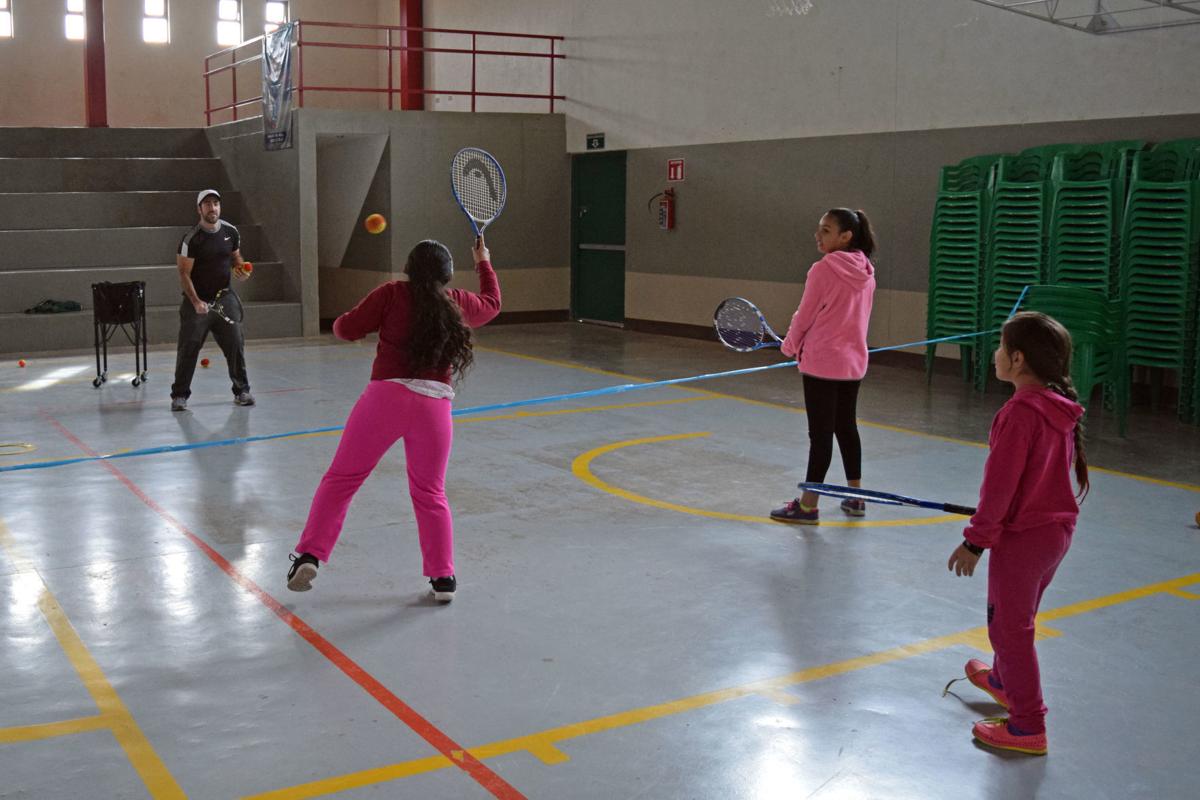What was originally supposed to be a cross-border event involving Nogales, Arizona, and Nogales, Sonora, changed last week, when photos emerged of a migrant caravan arriving in Tijuana.
Charlie Cutler adjusted.
Sunday’s Border Youth Tennis Exchange Rally for Border Youth will instead take place on Nogales, Sonora’s Calle Internacional, directly crossing the Morley pedestrian gate port of entry. The free tennis and arts festival for kids starts at 11 a.m., and is expected to last until 3 p.m.
Cutler, BYTE’s executive director and a Nogales, Arizona, resident, originally planned to hold an event that crossed the U.S.-Mexico border. The Border Patrol’s denial of a Roosevelt easement permit that would’ve allowed the event to take place within 60 feet of the border fence forced the change.
“As soon as those pictures came out in Tijuana, they called me up and said they had to deny my request,” Cutler said. “It would have been much easier to get a lot of Arizona folk to come participate, but we basically decided to shift the entire operation to the Mexican side.”

Sofia Villas, 7, gets more color as she works on one of the dozens of paintings that will be displayed at the Border Youth Tennis Exchange Rally for Border Youth on Sunday.
BYTE focuses on three things: teaching tennis to kids on both sides of the border, providing educational activities and changing the narrative of border life. Children are “international grassroots ambassadors” for the sport.
Jacksubeli Gonzalez, who serves as BYTE’s academic director, said both Nogales cities work as one community that just happens to be divided by both politics and a border.
BYTE, which includes three cohorts of kids from both Mexico and the U.S., aims to serve as a point of pride for a community that’s become the center of a political fight.
“It really affects the kids,” Gonzalez said of the ongoing drama. “It affects them to hear the news say their city is just slewed with violence, and they believe it and don’t get past that idea. They don’t think there’s any recreational opportunities or any other type of opportunities.”
Rosa Margarita fell in love with BYTE a year ago, when Cutler visited an elementary school to invite children to join the program. Now, Margarita brings her six grandchildren to BYTE. She’ll lead the “mom group” of food vendors at Sunday’s event.
“It gives us an opportunity to those that don’t have access,” Margarita said.
Moms are also heavily involved in BYTE. On Wednesday, Margarita was looking after three of her grandchildren while they took their tennis lessons. When the kids moved to the back room to continue paintings that they had started earlier, Margarita was right there alongside them.

Tyron Cortez, 12, prepares to serve during a tennis lesson at Centro Juvenil Don Bosco in Nogales, Sonora.
Free-standing backboards were painted with murals. The students also made a painting to be displayed at Sunday’s event.
Margarita helped, taking over the duties when some kids ran out of time. Margarita said the added classes are what she appreciates most. Students in Mexico, especially those from lower-income communities, don’t have the type of access to technology offered across the border. Margarita said she enjoys seeing her grandchildren learn to use tablets and create projects online.
“Hopefully they continue supporting Charlie and keeping the program going,” Margarita said. “We just adore him.”
Gonzalez, Cutler and other members of BYTE are trying to change border tropes through tennis.
This fall, 26 students received tennis lessons while also learning digital storytelling. Kids on both sides of the border work on the same projects at the same time, and get together at least once or twice per semester. Last year, Cutler escorted a group of Mexican kids to the University of Arizona, where they met their American counterparts for tennis.
“So everything we do, we try to find a way to make it cross-border,” Cutler said. “We’ll start a project on one side and then finish the project on the other. Trying to figure out ways to get the kids to comprehend that they’re part of a binational organization, which isn’t easy.”
Even though the border is a hot political topic at the moment, Cutler has found investors in surprising areas. He said some of his top donors are Republicans from California. Other sponsors include brothers Bob and Mike Ryan, the legendary professional doubles team.
The key is not to dwell on border or immigration issues, he said. Instead, Cutler — and the kids — focus on tennis, and the added opportunities that come with it.
“A kid playing tennis in Arizona looks the same as a kid playing tennis in Mexico,” Cutler said.







